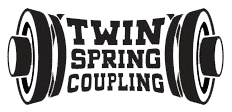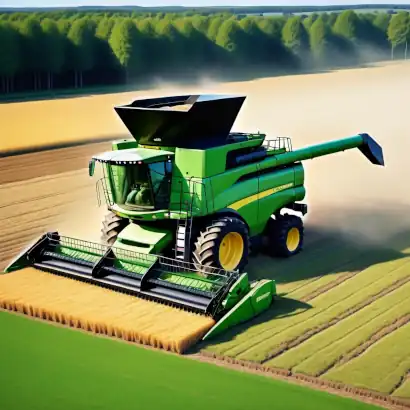Emerging Coupling Technologies in Agriculture
Table of Contents
As the demands on modern agriculture continue to grow, power transmission coupling manufacturers are developing advanced solutions to help farmers operate more efficiently. Here are some emerging technologies that are shaping the future of couplings in agriculture.
1. Smart Couplings with Condition Monitoring Sensors
One of the most significant advancements in coupling technology is the integration of smart sensors for condition monitoring. Smart couplings can now be fitted with sensors that track key operational parameters, including:
- Torque transmission
- Vibration levels
- Misalignment detection
- Temperature
These sensors continuously monitor the performance of the coupling in real-time, providing farmers with critical data that helps them predict maintenance needs before a failure occurs. By identifying issues such as misalignment or excessive vibration early, farmers can schedule maintenance during non-critical times, minimizing equipment downtime.
How This Helps Farmers:
- Preventative Maintenance: Avoid costly breakdowns by detecting potential problems early.
- Reduced Downtime: Equipment stays operational longer, especially during busy periods like planting and harvest.
- Data-Driven Decisions: Make informed decisions about when to repair or replace couplings based on actual performance data.
2. High-Performance Composite Materials
Traditionally, power transmission couplings were made of metals like steel or aluminum. While these materials are still widely used, advances in material science have led to the development of high-performance composite materials that offer several advantages over traditional metals.
Composite couplings are made from materials like carbon fiber and reinforced plastics, which provide the following benefits:
- Reduced Weight: Composite couplings are lighter than their metal counterparts, reducing the overall weight of machinery and improving fuel efficiency.
- Corrosion Resistance: Composites are highly resistant to corrosion, making them ideal for farming environments where equipment is often exposed to moisture, chemicals, and varying weather conditions.
- Longer Lifespan: Due to their high durability and resistance to wear, composite couplings typically have a longer lifespan, reducing the frequency of replacements.
How This Helps Farmers:
- Improved Fuel Efficiency: Lighter equipment requires less energy to operate, leading to reduced fuel costs.
- Lower Maintenance Costs: Composites require less maintenance and are resistant to environmental factors that can degrade traditional couplings.
- Extended Equipment Lifespan: With composite materials, you can expect longer-lasting couplings, reducing downtime and replacement costs.
3. Elastomeric Couplings with Enhanced Flexibility
Elastomeric couplings, which use flexible rubber-like materials to transmit torque, have been around for some time. However, recent advances have improved their flexibility, durability, and vibration-damping capabilities.
New elastomeric couplings feature enhanced polymer technology, allowing them to accommodate greater misalignments and absorb even more shock loads. This makes them ideal for farm machinery that operates in rugged terrain, where frequent alignment issues and shock loads can lead to premature wear on other components.
How This Helps Farmers:
- Smoother Operations: Enhanced elastomeric couplings absorb shocks and vibrations more effectively, leading to smoother, quieter equipment performance.
- Reduced Wear on Machinery: By protecting connected components from excessive stress, these couplings can reduce wear and extend the lifespan of farm equipment.
- Cost Savings: With reduced vibrations and better alignment control, elastomeric couplings can decrease the need for frequent repairs or replacements.
4. Quick-Connect Couplings for Easy Maintenance
The modern farmer’s time is precious, and any downtime due to machinery maintenance can be costly. To address this, coupling manufacturers have developed quick-connect couplings, which allow for faster installation and replacement without the need for specialized tools or extensive training.
Quick-connect couplings feature modular designs that make it easy to detach and replace them, even in the field. This is especially useful for farmers during peak seasons when equipment breakdowns can delay critical tasks.
How This Helps Farmers:
- Faster Maintenance: Reduce the time it takes to replace worn-out or damaged couplings, keeping your machinery operational for longer.
- No Special Tools Required: With quick-connect systems, you can perform maintenance on the go, without the need for advanced tools or equipment.
- Less Downtime: Fast, easy coupling replacement helps you avoid extended downtime, particularly during key farming periods.
5. Hybrid Couplings for Enhanced Versatility
As farming equipment becomes more specialized, coupling manufacturers are creating hybrid couplings that combine the benefits of different coupling types. These hybrid designs can handle a broader range of operational conditions, making them highly versatile for various farming applications.
For example, a hybrid coupling may combine the flexibility of elastomeric couplings with the torque-handling capabilities of gear couplings, offering the best of both worlds.
How This Helps Farmers:
- Versatility: Hybrid couplings can be used in a wide range of farming applications, from tractors to irrigation systems, reducing the need for multiple coupling types.
- Improved Durability: By blending different technologies, hybrid couplings can offer superior performance in challenging conditions, extending the lifespan of your equipment.
- Increased Productivity: Hybrid couplings can adapt to changing operational conditions, ensuring optimal performance in varying environments.
Benefits of Upgrading to New Coupling Technologies
Emerging coupling technologies offer a wide range of benefits that can improve the efficiency, performance, and longevity of your farming equipment. Here are some of the key advantages:
1. Increased Equipment Efficiency
New coupling designs are engineered to minimize energy loss and improve power transmission efficiency. By upgrading to advanced couplings, farmers can reduce fuel consumption and maximize the power output of their machinery.
2. Reduced Downtime
Smart couplings with condition monitoring sensors can alert farmers to potential issues before they become major problems. This allows for preventative maintenance, reducing the likelihood of unexpected breakdowns and keeping equipment running during critical farming periods.
3. Lower Operating Costs
Whether through improved fuel efficiency, reduced maintenance needs, or longer coupling lifespans, upgrading to advanced coupling technology can significantly lower the overall cost of operating and maintaining your farming equipment.
4. Enhanced Durability
New materials, such as high-performance composites and advanced elastomers, provide greater resistance to wear, corrosion, and environmental factors. This increased durability means that couplings will last longer, reducing the need for frequent replacements.
5. Better Performance in Harsh Conditions
Farming often takes place in challenging environments, with equipment exposed to dust, moisture, and extreme temperatures. Advanced couplings are designed to perform well in these conditions, ensuring that your machinery continues to operate at peak efficiency.
Emerging Coupling Technologies in Agriculture
Choosing the Right Coupling for Your Farm
When upgrading your farm equipment with the latest coupling technologies, it’s essential to select the right type of coupling for your specific needs. Here are some factors to consider:
- Type of Equipment: The type of machinery you use will determine the kind of coupling you need. For example, tractors may require gear couplings for high torque, while irrigation systems might benefit from elastomeric couplings for vibration damping.
- Operational Conditions: Consider the environment in which your equipment operates. If your machinery is exposed to extreme conditions, choose couplings made from corrosion-resistant materials or those designed to handle heavy shocks and misalignments.
- Maintenance Requirements: If you need to minimize downtime and maintenance, consider quick-connect couplings or those with condition monitoring sensors to simplify repairs.
- Torque and Power Requirements: Ensure that the coupling you select can handle the torque and power transmission needs of your equipment to avoid premature wear or failure.
Call to Action: Upgrade Your Couplings for a More Efficient Farm
If you’re looking to improve the performance, efficiency, and longevity of your farm equipment, it’s time to consider upgrading your power transmission couplings. By embracing the latest technologies, such as smart sensors, composite materials, and hybrid designs,

